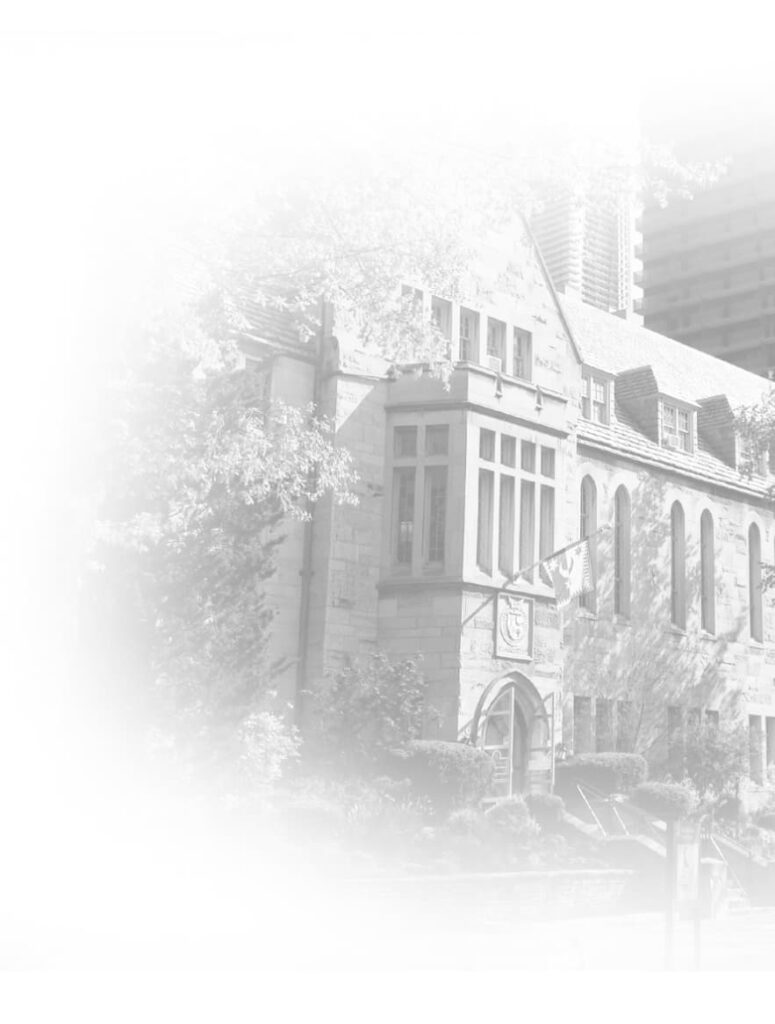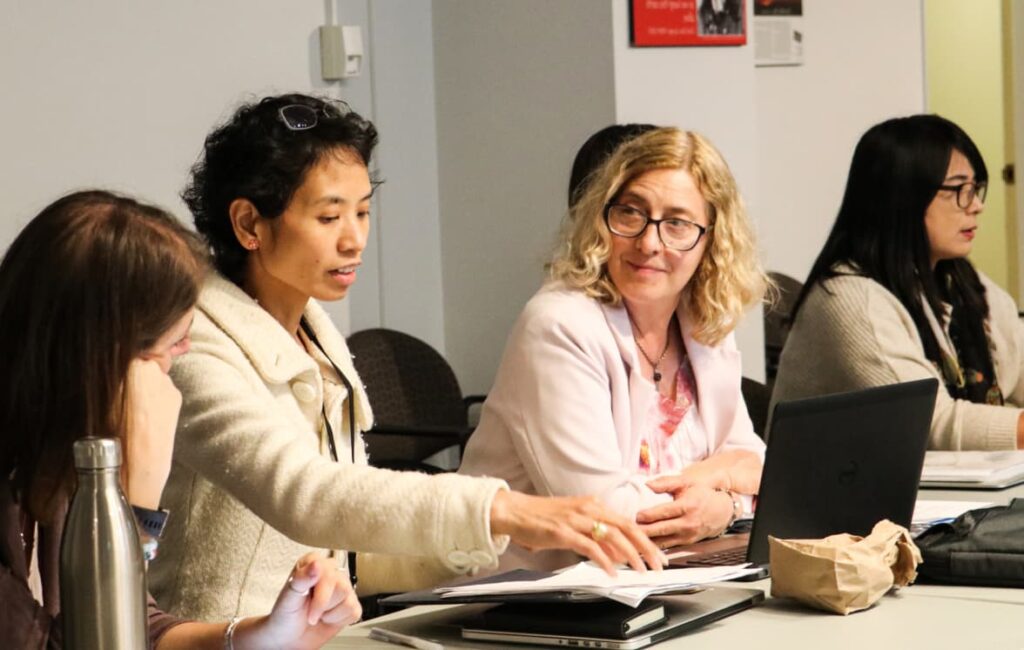Degree Programs
All students are part of a single Regis St. Michael’s Faculty ofTheology. Since a majority of degree programs are offered by both member colleges, students may register through either college. Each college, however, has a few of its own unique program offerings.
A complete list of courses available from the Toronto School of Theology can be found on the TST website.
Learn more about Regis College Programs by clicking the links below.
Click here for Regis College Timetables.
Click here to apply to Regis College programs.
Click here to apply to University of St. Michael’s College programs.
-
Master of Arts in Ministry and Spirituality (MAMS)
The Master of Arts in Ministry and Spirituality program is designed for women and men withactive ministerial experience who seek ...Learn More -
Master of Divinity (MDiv)
This program teaches individuals to appropriate and integrate the Catholic intellectual heritage and its significance/ relevance for understanding the current cultural context (ecumenism, interfaith, ecology, etc.)Learn More -
Master of Religious Education Degree (MRE)
This professional program is designed to prepare individuals for the ministry of religious education. It welcomes individuals from various aspects of this ministry such as teaching or supervising in schools, parishes, dioceses, or international settings.Learn More -
Master of Theological Studies (MTS) Theology, Spirituality and the Arts Stream
The Master of Theological Studies Theology, Spirituality, and the Arts stream is designed to provide students with the knowledge and skills necessary to analyze and interpret the theological dimension of the arts and culture.Learn More -
Master of Theological Studies Degree (MTS)
This program is designed to strengthen the religious basis of the individual’s life and work by providing the individual with a general theological understanding as well as the opportunity for in-depth study and specialization.Learn More
How to Apply for Basic Degree Programs
- Complete your chosen degree application form. You will find specific program application forms for the MDiv, MTS, and MRE below.
-
Submit the application form along with the $25 application fee and your Letter of Intent to the Student Services Office by the following timelines:
- by the last Friday in June for those wishing to begin studies in September.
- by the last Friday in November for those wishing to begin studies in January.
- by the last Friday in March for those wishing to begin studies in the intersession term (April-May).
- by the last Friday in May for those wishing to begin studies in the summer term (July-August).
N.B. Applications received after these deadlines cannot be guaranteed consideration.
-
Include:
- Official Transcripts
- Letters of Recommendation
Official Transcripts must be submitted directly by the respective educational institutions. The Faculty reserves the right to determine whether or not credentials of other degree-granting institutions meet the standards for admission to the Faculty programs. Admission decisions are final and cannot be appealed. Letters of Recommendation (normally letters are of an academic and/or professional nature) must be submitted directly by those writing the letters.

Advanced Degree Programs are offered conjointly through the Toronto School of Theology (TST). TST offers two advanced master's degrees, the Master of Theology (ThM) and the Master of Arts in Theology (MA). Both degrees are granted conjointly by the University of Toronto and the TST member school in which the student is registered.
TST's doctoral program leads towards the Doctor of Philosophy in Theological Studies (PhD), granted conjointly by the University of Toronto and the TST member school in which the student is registered.
The Doctor of Ministry (DMin) program is a professional doctoral degree granted conjointly by the University of Toronto and the TST member school in which the student is registered.
Learn more at the TST website.
-
Master of Theology (ThM)
The ThM program is designed to deepen a student’s knowledge of theology and further their preparation for pastoral ministry or for doctoral study.Learn More -
Master of Arts in Theological Studies (MA)
The MA in Theology provides students with a graduate-level competence in several areas of theological study, preparing students for doctoral work.Learn More -
Doctor of Philosophy in Theological Studies (PhD)
The doctoral program aims to develop competence that will enable students to make an original contribution to scholarship in a chosen area of specialization. These programs prepare students to teach theology and religious studies in a university or seminary and to do university-level research and writing.Learn More -
Doctor of Ministry Degree (DMin)
The DMin program is designed to develop excellence in the practice of ministry through a creative coordination of theological reflection, professional development, social analysis, and personal integration.Learn More
As an educational institute holding both ecclesiastical and civil charters, Regis College also offers three ecclesiastical degrees recognized across Canada and around the world. The thirty-unit Bachelor of Sacred Theology is a “first-cycle” program, corresponding to the Regis College Master of Divinity, that provides first formation in ministry. The two year, “second cycle,” Licentiate in Sacred Theology provides the basic level of competence to teach theology in many Roman Catholic schools and is often pursued in conjunction with a Regis St. Michael’s Faculty of Theology research oriented advanced master program. The “third cycle” Doctor of Sacred Theology offers the in-depth preparation required to teach at an advanced level or exercise other creative forms of leadership in the Church.
View the Ecclesiastical Degrees on the Regis College website.
Learn more at the TST website.
-
Master of Religious Education Degree (MRE)
This professional program is designed to prepare individuals for the ministry of religious education. It welcomes individuals from various aspects of this ministry such as teaching or supervising in schools, parishes, dioceses, or international settings.Learn More




